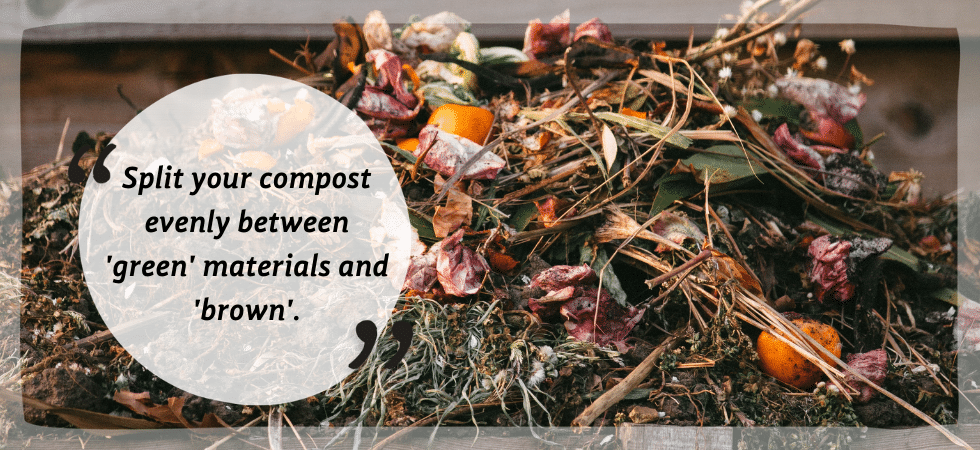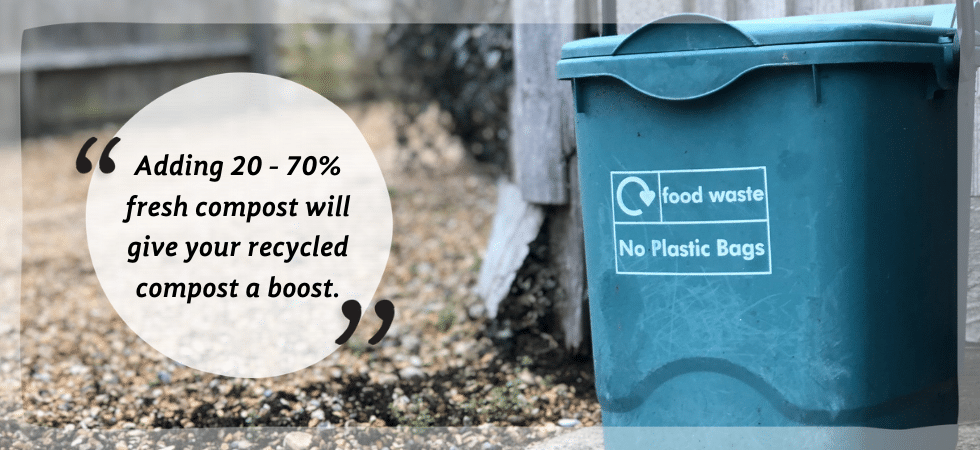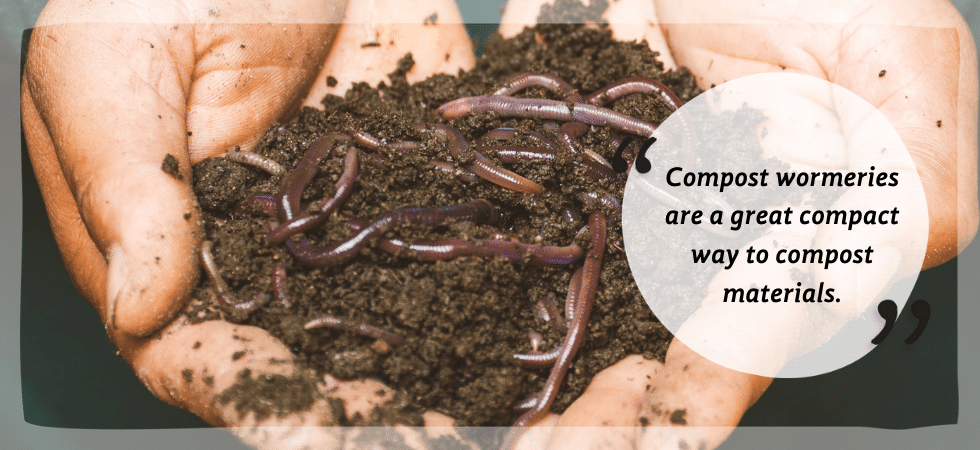Your own recycled compost – done right!
Digging down into recycled compost
Thinking about creating your own compost from materials you’d usually recycle? Smart move. With a little care and patience, you’ll have a free nutrient-rich growing medium for your plant babies. Plus less stuff to recycle. Result!
What can be recycled to make compost?
Compost is a kind of gardening casserole of materials. You can repurpose everything from left-over food scraps to cardboard boxes, to save the planet and the money your pocket.
With home-made compost, it’s vital to split it evenly between ‘green’ materials and ‘brown’. The ‘green’ materials keep the compost moist. Drier ‘brown’ materials add structure and ensure the mix doesn’t get too wet. Too green and your compost will turn slimy. Too brown, and the magic microbes won’t be able to break down the material into compost.

50% Green
- Fruit and veg peel
- Tea leaves, bags and coffee grounds
- Cut flowers
- Garden prunings
- Autumn leaves
- Old plants that have died of neglect rather than a nasty disease – you don’t want to re-infect your next generation!
50% Brown
- Egg shells
- Dust from your hoover
- Egg boxes, toilet roll tubes, natural cardboard package – avoid anything with a plastic coating
- Twigs and woody stalks
- Shredded newspaper
What is composting recycling?
Composting recycling is just another term for composting really! Composting is the process where lots of helpful creepy crawlies like earthworms eat and excrete organic waste. This helps break down the materials into compost. So much more useful than just letting them rot.
Strictly speaking, recycling is when you process non-organic waste to use it in something else. So old tyres into road surfaces, plastic bottles into coasters, that kind of thing.
Recycling coir waste into compost
Our own coir compost is made by processing, double washing and then compressing coconut husk fibres. This excess coir used to be seen as a waste product. Now it gets to shine as a brilliant growing medium for plants.
Pro Tip: The definition of compost is the decomposition of green material like food waste to enrich soil. Coir compost is technically a “growing medium”, which is more of a blank canvas for growing plants.- Producers however don’t tend to use the term growing medium as people don’t tend to understand what this means.

Can old compost be recycled?
Plants get hungry. After a season they will have used up the nutrients originally contained within their compost. Hungry plants like roses and tomatoes will have been even greedier. It’s why you have to keep feeding them throughout the growing season.
But even old compost which supported the most ravenous of plants doesn’t need to be thrown out.
How to use old compost to grow plants:
- Try growing less fussy plants in old compost like carrots, herbs, beans, peas and salad veggies
- Add between 20% – 70% fresh compost into old compost to give it a nutrient boost
- Add perlite or vermiculite made from volcanic rock to add air gaps back into old compost. Or biochar – really finely ground charcoal – works well too.
Can coir compost be re-used?
Absolutely! Our Coco Grow is a nutrient free coir substrate. As long as you remove weeds, roots and debris you can continue to use it as a growing media. The same goes for our Coco Boost multipurpose blend, except you won’t know how many nutrients are left in it.
Coir compost is also really good at retaining ‘good’ microorganisms that protect against harmful pests, weeds and bacteria.
How to avoid throwing old compost into landfill:
- Use old compost to bulk out the bottom layer of deep plant pots or containers, where the roots won’t reach
- Mulch the top of your veg beds or flower borders with old compost to keep moisture levels in and weed growth out
- Mix it into your compost bin. In the best Bake-Off tradition, the more layers the better of old and fresh compost.

Making your own compost can take up valuable room. If you’ve only a small courtyard patio or balcony, it really isn’t an option.
But don’t despair! Composting wormeries can be pretty compact, with some models small enough to keep in the kitchen. Packed with specialist worms that chomp through kitchen food waste, they produce some fantastic organic compost. Check out this Gardeners’ World article about their 9 best wormeries
Run out of time?
All good things come to those who wait. But home-made compost can take up to a year before it’s ready. So you can keep growing, why not check out our eco-friendly range of peat-free compost?
Tips from the ‘Green Gardeners Guild’ online advice library
On the lookout for more tips and hints? Our blogs are packed with advice:
Organic Compost: Using coco coir in composting
How to grow vegetables in coco coir peat
Let us know if you have any recycled compost secrets or wins!
We would love to see how you recycle compost to save on your landfill contributions.
Please post your pictures and tag @cocoandcoir on Instagram. We’ll credit you for any images we use and you’ll also be in with a chance to win some Coco & Coir goodies for your sustainable garden.










